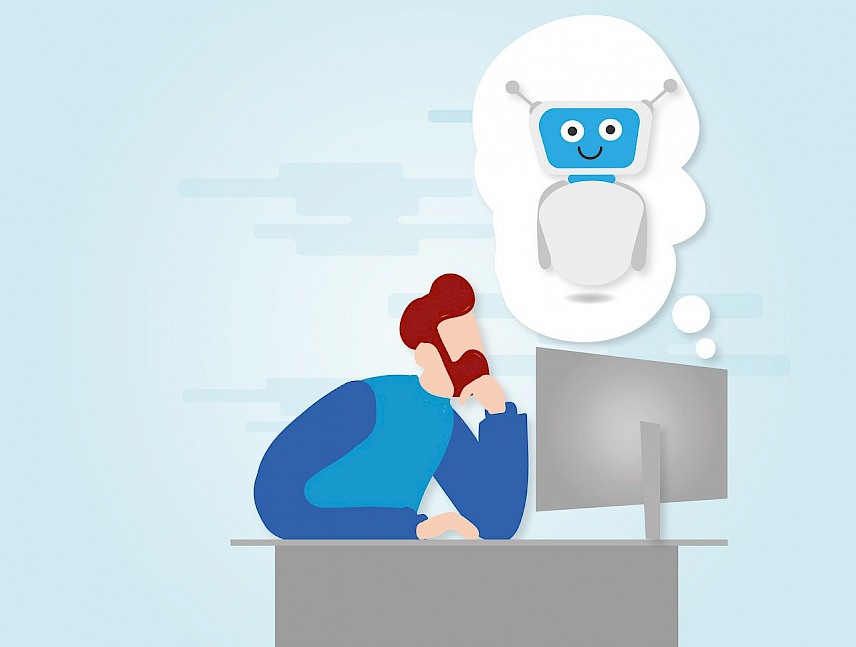
Artificial intelligence (AI) sites, such as ChatGPT, offer a very quick way to generate all kinds of text. With that in mind, and your time at a premium, you might be thinking it's a perfect way to generate content for your website.
While AI-generated text offers convenience, is the text it generates right for a business website? It’s crucial that, as a website owner, you understand the potential dangers of AI text before diving in.
In this article, we’ll explore the risks of using AI-generated text on a website. In short, we urge everyone to exercise caution and consider the implications carefully!
Authenticity
One of the primary dangers of using AI-generated content is the loss of authenticity. AI lacks the human touch, more specifically the brand specific voice of your company. Getting the right 'voice' for your website text is challenging at any time. When you're trying to produce content that stirs human emotions this becomes especially difficult. Authenticity of your brand ‘voice’ is vital for building trust and connecting with website visitors. By relying on AI-generated content, we run the risk of appearing impersonal or detached. This is, of course, a big 'no no' for most brands.
Quality and Accuracy
AI generated text can only ever be as good as the data the AI was trained with. While AI models have made significant advances, they’re not foolproof. Errors, inaccuracies, and nonsensical statements can easily slip through the cracks. On a website, these could damage your credibility and reputation. Furthermore, AI struggles to capture nuanced, complex, or opinion-based topics accurately. This can lead to misleading or incorrect information being disseminated by your website. Moreover, if you're in a niche industry, the likely pool of data an AI is using will be small. This only increases the risk of the AI generating misleading content.
Legal and Ethical Worries
Plagiarism and copyright infringement are serious concerns with AI generated text. Without proper attribution or authorisation, only the AI knows the source of its data. In fact, AI text often doesn't include attributions at all! Also, AI can produce biased content. This might be due to prejudiced training data or a small dataset for niche topics. This factor alone could, in a worst-case scenario, expose a business to legal liabilities and/or damage to its reputation.
Brand Consistency
Maintaining a consistent brand voice and identity is crucial when marketing a business. AI-generated content often fails to capture the nuances and subtleties that define a brand's voice. A diluted or misrepresented brand image and/or a confused audience could easily result from AI-generated content. This can lead to customers feeling confused, and disconnected from the brand. Ultimately, this might lead to decreased customer engagement and a downturn in sales…
Lack of Human Judgment
While AI can generate vast amounts of content quickly, it lacks human judgement. AI still struggles to understand things like cultural nuances and humour. Also, sometimes it uses an inappropriate tone within sensitive topics. At the very least, a human is needed to review and edit any AI generated content to ensure accuracy and sensitivity.
Summary
For now, the takeaway is that an over-reliance on AI-generated content can lead to a decline in your customers’ perception of your brand.
While AI generated text offers benefits in speed and cost, website owners must mitigate the potential dangers. From the loss of authenticity and brand consistency to legal and ethical concerns (and lack of the human touch), there can be significant pitfalls.
If you’re going to use AI for content creation, then striking the right balance between AI generation and human input is crucial. By exercising caution (and using human editors), you can mitigate the potential dangers. However, we recommend caution.





